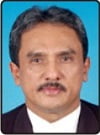Teachers’ Education Curriculum towards Establishment of Patriotism in Malaysia
Abstract
ABSTRACT: This study aims to identify and analyse the elements contained in the objectives of academic curriculum and co-curricular content in terms of differences, relationships, influences, and understanding of learning skills, thinking skills as a mediator to the confidence to apply the elements of patriotism among students of Post-Graduate Teaching Course for Primary School (PGTC PS) and Bachelor of Teaching for Primary Schools (BT PS) in Institute of Teachers Education (ITE) in Malaysia. This survey study used questionnaires on 289 PGTC PS and BT PS students of the North Zone and East Zone ITE in Peninsular Malaysia. The t-test results showed that there was a significant difference between PGTC PS and BT PS students in terms of understanding on learning skills and thinking skills, but do not have any significant difference in terms of confidence to implement the elements of patriotism. Pearson correlation analysis shows that there was a moderate relationship between the variables of learning skills, thinking skills, academic curriculum, co-curriculum, and the confidence to apply the elements of patriotism among PGTC PS and BT PS students. These findings serve as evidence to the Ministry of Education (MOE) in Malaysia to make recommendations to the ITE to serve as a guide in improving the confidence of trainee students in applying the elements of patriotism.
KEY WORDS: Teaching the patriotism, learning skills, thinking skills, mediator, students, and Institute of Teachers Education in Malaysia.


About the Authors: Dr. Ramli Ismail is a Lecturer at the Social Studies Department, Institute of Teachers Training, Sultan Mizan Campus, Besut, Terengganu, Malaysia; and Norwaliza Abdul Wahab is a Counsellor at the SMK (State Senior High School) Seri Pagi, Seremban, Negeri Sembilan, Malaysia. They can be reached at: rameysyis@gmail.com and lyzaalogan@gmail.com
How to cite this article? Ismail, Ramli & Norwaliza Abdul Wahab. (2013). “Teachers’ Education Curriculum towards Establishment of Patriotism in Malaysia” in EDUCARE: International Journal for Educational Studies, Vol.5(2) February, pp.173-190. Bandung, Indonesia: Minda Masagi Press owned by ASPENSI in Bandung, West Java; and FKIP UMP in Purwokerto, Central Java, ISSN 1979-7877.
Chronicle of the article: Accepted (December 7, 2012); Revised (January 12, 2013); and Published (February 17, 2013).
Full Text:
PDFReferences
Abd Rashid, Abd Rahim. (1997). “Cultivation of Patriotism and Vision in the Curriculum of History Education”. Paper presented in the ISSC (Integrated Secondary School Curriculum) History Teaching Course for History Resources Teachers, PPK KPM, Air Keroh, Melaka, Malaysia: 10-14 March.
Abd Rashid, Abd Rahim. (1999). History Education: Philosophy, Theory, and Practice. Kuala Lumpur: Utusan Publications & Distributors.
Abd Rashid, Abd Rahim. (2005). Teachers’ Professionalism: Prospect and Challenges. Kuala Lumpur: Dewan Bahasa dan Pustaka.
Arad, Uzi & Gal Alon. (2006). Patriotism and Israel’s Nation Security: Herzliya Patriotism Survey 2006. Tel Aviv, Israel: Institute for Policy and Strategy. Available also at: http://www.herzliya.comference.org/Eng_uploads/1388pat-e.pdf [accessed in Besut, Malaysia: 15th January 2013].
Bar-Tal, D. & E. Staub [eds]. (1997). Patriotism in the Lives of Individuals and Nations. Chicago: Nelson-Hall Publishers.
Berns, W. (2001). Making Patriots. Chicago: University of Chicago Press.
Borg, W.R. & M.D. Gall [eds]. (1989). Educational Research: An Introduction. New York: Longman Inc., 5th edition.
Buntat, Yahya & Zainuddin Masron. (2003). “The Practice of Teaching Profession Ethics among Kampung Melayu National School, Kulai, Johor: An Overview” in Jurnal Teknologi UTM, 38(E), June, pp.65-74.
Cohen, J. (1992). “Statistical Power Analysis” in American Psychological Society, 1(3), pp.98-101.
Doob, L.W. (1963). Patriotism and Nationalism: Their Psychological Foundation. London: Yale University Press.
Embi, Muhammad Ali. (2009). Patriotism and Believe of Malaysia Citizens. Kuala Lumpur: Utusan Publications & Distributors.
Fat, Beh Ah. (2004). National Principles: General Knowledge Series. Kuala Lumpur: Department of Information Service of Malaysia.
Fay, Fooi Say. (2005). Ethics of Teaching: A Guarantee to Improvement of Professionalism. Serdang, Selangor: UPM (Putra University of Malaysia) Publisher.
Feshbach, S. (1987). “Individual Aggression, National Attachment, and the Search for Peace” in Aggressive Behaviors, 5, pp.315-326.
Gordon, R.H. (2000). ”Modernity, Freedom, and the State: Hegel’s Concept of Patrotism” in The Review of Politic, 62 (Spring), pp.295-325.
Gravetter, F.J. & L.B. Wallmau [eds]. (2002). Essentials of Statistics for the Behavioral Sciences. Pacific Grove: Wadsworth, 4th edition.
Hollis, M. (1996). Machiavelli, Milton, and Hobbes on Liberty in the Textual Introduction to Social and Political Theory. Manchester: Manchester University Press, edited by Richard Bellamy & Angus Ross.
Huddy, L. & N. Khatib. (2007). “American Patriotism, National Identity, and Political Involvement” in American Journal of Political Science, Vol.51(1), January, pp.63-77.
Hussain, Sufean. (2004). History, System, and Philosophy of Education in Malaysia. Kuala Lumpur: Dewan Bahasa dan Pustaka.
Johari, Mohd Janib. (2001). Professional Ethics. Skudai, Johor: UTM (Technology University of Malaysia) Publisher.
Jose, P.E. (2008). MedGraph-I: A Programme to Graphically Depict Mediation among Three Variables, the Internet Version, Version 2.0. Wellington, New Zealand: Victoria University of Wellington. Available also at: http://www.victoria.ac.nz/psyc/paul-jose-files/medgraph/result.php [accessed in Besut, Malaysia: 8th November 2012].
Kah Kei, Lam et al. (2007). “Post-Degree Teaching Course for Primary School: Assessment of Suitability and Effectiveness of Program” in Jurnal Penyelidikan Pendidikan Guru, Jilid 3. Kuala Lumpur: MOE [Ministry of Education] Malaysia.
Kim, Khoo Kay. (2002). “Philosophy of History: Towards Expanding the Element of Patriotism and Nationhood”. Paper presented in the National Seminar of Education Philosophy towards Strengthening the Nationhood Ideas and Vision at UM (University of Malaya), Kuala Lumpur, Malaysia: 6-7 July.
Kim Mang, Chee. (2008). “The Quality of Beginner Teachers of a Teaching Institute: An Overview from the Perspective of school Administrators” in Jurnal Pendidikdan Pendidikan, Vol.23. Pulau Pinang: Published by USM [University of Science Malaysia], pp.49-67.
Krejcie, R.V. & D.W. Morgan. (1970). ”Determining Sample Size for Research Activities” in Educational and Psychological Measurement, 30, pp.607-610.
Ku Samsu, Ku Hasnita & Mohd Haizan Mohd Nor. (2009). “Spirit of Patriotism among Non-Malay Students in Higher Education Institutions around Klang Valley” in Akademika, 75 [Jan-April], pp.85-100.
Leahy, K. (1988). “Testing Methodology: Statistical Power and Sample Size Determination” in Direct Marketing, 50(11), pp.28-32.
Leonard, M. (2007). “Teaching Critical Thinking in a Community-College Art-History Learning Environment: A Comparison of Implicit Instruction versus a Combination of Implicit and Explicit Instruction”. Unpublished Ph.D. Dissertation. San Francisco, USA: University of San Francisco. Available also at: ProQuest Imformation and Learning Company, UMI Microform 3280031.
Mac Intyre, A. (1994). ”Is Patriotism a Virtue?” in M. Daly Belmont [ed]. Communitarian. CA: Wadsworth.
Machia, J.L. (2000). So, What is Patriotism Anyway. New York: The Rosen Publishing Group Inc.
Mahamud, Jaizah. (2001). “An Overview on Cultivation of Element of Patriotism through the Subject of Local Studies among Trainee Teachers during Practicum”. Paper presented in the Research Seminar of MPKB, on 14-15 August.
Marimuthu, Nadarajan. (2006). “A Survey on the Understanding of Patriotism among the Students of Teacher Institute: Case Study in IPRM”. Paper presented in the National Level Teachers’ Research Seminar, Organised by TED/IPTI.
MOE [Ministry of Education] Malaysia. (1994). Guidelines of Reinforcement of Primary School Patriotism Cultivation Program. Kuala Lumpur: CDC [Curriculum Development Center].
MOE [Ministry of Education] Malaysia. (2001). Description of Form 1 ISSC History Syllabus. Kuala Lumpur: CDC [Curriculum Development Center].
MOE [Ministry of Education] Malaysia. (2002). Description of Integrated Secondary School Curriculum Syllabus: History Form 1, 2, & 3. Kuala Lumpur: CDC [Curriculum Development Center].
MOE [Ministry of Education] Malaysia. (2004). Integrated Secondary School Curriculum: Description of Form 1 Civic and Nationality Education Syllabus. Kuala Lumpur: CDC [Curriculum Development Center].
MOE [Ministry of Education] Malaysia. (2005). Integrated Secondary School Curriculum: Description of Standard 5 Local Studies Syllabus. Kuala Lumpur: CDC [Curriculum Development Center].
MOE [Ministry of Education] Malaysia. (2006). Description of Standard 5 Civic and Nationality Education Syllabus. Kuala Lumpur: CDC [Curriculum Development Center].
MOE [Ministry of Education] Malaysia. (2007). Bachelor of Teaching with Honours Program: Academic Handbook January 2007. Besut, Terengganu, Malaysia: Teacher Education Institute, Sultan Mizan Campus.
MOE [Ministry of Education] Malaysia. (2007/2008). Bachelor of Teaching with Honours Program Handbook Session 2007/2008. Kuala Lumpur: Teacher Education Institute Malaysia, Teacher Education Division.
MOE [Ministry of Education] Malaysia. (2009). Basic Enrolment Quick-Facts of Pre-Service and In-Service Students Teacher Education Institute. Kuala Lumpur: Teacher Education Division.
Mohamed Naim, Asmadi et al. (2003). “Building Students’ Patriotism through Islamic Education: An Empirical Study on PHLI” in Proceeding of Strengthen the Education System National Seminar at UTM (Technology University of Malaysia), Johor: 19-21 October, pp.38-50.
Mohd Baharin, Omar Hisham. (2005). “A Research on the Elements of Value as One of the Elements Cultivated in T&L among Trainee Teachers During Teaching Training (Practicum)” in Proceeding of JPPG Education Seminar, pp.437-442.
Mohd Ishak, Noriah & Mohammed Sani Ibrahim. (2007). “Ethics in Teaching Profession” in Norzaini Azman & Mohammed Sani Ibrahim [eds]. Teaching Profession. Bangi: Faculty of Education UKM (National University of Malaysia), pp.161-182.
Mohd Nor, Idris. (2003). Independence, Identity, and Patriotism: Understanding, Challenges, and Obstacles. Kuala Lumpur: National Civics Bureau, Prime Minister’s Department.
Mohd Taib, Mohamad Noor. (2006). “Cultivation of Core Value of Patriotism in Teaching and Learning of History” in Proceeding of JPPG Education Seminar Year 2005.
Mohd Yasin, Fatimah & Saemah Rahman. (2009). “ICT Integration Training Strategic and Thinking Skills in the Teachers’ Education Program” in Reformasi Pendidikan Serantau. Bangi, Selangor Darul Ehsan: Faculty of Education NUM [National University of Malaysia], pp.153-165.
Nagapan, Rajendran. (2000). “Teaching Higher-Order Thinking Skill in Classrooms: Learning from the Experiences of Malaysia”. Paper presented in the Thinking Qualities Initiative Conference at the Centre of Educational Development, Hong Kong Baptist University, 23-24 January.
Ndubisi, Nelson Oly & Muhamad Jantan (2003). “Evaluating IS Usage in Malaysian Small and Medium-Sized Firms Using the Technology Acceptance Model” in Logistics Information Management, 16(6), pp.440-450. Available also at: http://www.emeraldinsight.com/0957-6053.htm [accessed in Besut, Malaysia: 26th November 2012].
Nordin, Abu Bakar & Ikhsan Othman. (2008). Education Philosophy and Curriculum. Tanjung Malim, Malaysia: Quantum Book, 2nd edition.
OOA [Office of Outcomes Assessment]. (2006). Critical Thinking as a Core Academic Skill: A Review of Literature. Maryland, USA: University of Maryland, University College.
Parker, R.D. (2002). “Homeland: An Essay on Patriotism” in Harvard Journal of Law and Public Policy, 25(2), Spring, pp.407-428.
Putman, E.D. (1998). “Teaching about Patriotism: An Assessment of Teacher Attitudes and Classroom Practices”. Unpublished Ph.D. Dissertation. USA: University of Tennessee Knoxville.
Ramly, Ishak, Mohd Daud hamzah & Zakaria Kassim. (2004). “Patriotisms Research and Weltanschauung: An Approach to Development of Rural Communities”. Unpublished Research Project in collaboration between INFRA (Institute for Rural Advancement), Projek Penyelidikan antara Institut Kemajuan Desa, Ministry of Rural and Regional Development, and USM (Science University of Malaysia).
Reykowski, J. (1997). “Patriotism and the Collective System of Meaning” in D. Bar-Tal & E. Staub [eds]. (1997). Patriotism in the Lives of Individuals and Nations. Chicago: Nelson-Hall Publishers, pp.108-128.
Sulaiman, Esah. (2003). Teaching Professionalism Practice. Skudai, Johor: UTM (Technology University of Malaysia) Publisher.
Tajfel, H. (1981). Human Groups and Social Categories. Cambridge: Cambridge University Press.
Tajfel, H. & J.C. Tunner. (1986). ”The Social Identity Theory of Intergroup Behaviour” in S. Worchel & W. Austin [eds]. Psychology of Intergroup Relations. Chicago: Nelson Hall.
Tamir, Y. (1997). “Reflection on Patriotism” in D. Bar-Tal & E. Staub [eds]. (1997). Patriotism in the Lives of Individuals and Nations. Chicago: Nelson-Hall Publishers, pp.23-41.
Viroli, M. (1995). For Love of Country: An Essay on Patriotism and Nationalism. Oxford: Oxford University Press.
Williams, L.R., L.M. Foster & R.K. Krohn. (2008). “Relationship of Patriotism Measures to Critical Thinking and Emphasis on Civil Liberties versus National Security” in Analyses of Social Issues and Public Policy, Vol.8, No.1, pp.139-156.
Woolfork, A. (2004). Educational Psychology. Boston: Allyn & Bacon, 9th edition.
Yusuf, Abu Bakar. (2005). “Patriotism in the Implementation of the Primary School Curriculum” in Proceeding of the Educational Seminar JPPG in Pulau Pinang: USM (Science University of Malaysia), pp.810-818.
EDUCARE: International Journal for Educational Studies. Ciptaan disebarluaskan di bawah Lisensi Creative Commons Atribusi-BerbagiSerupa 4.0 Internasional
